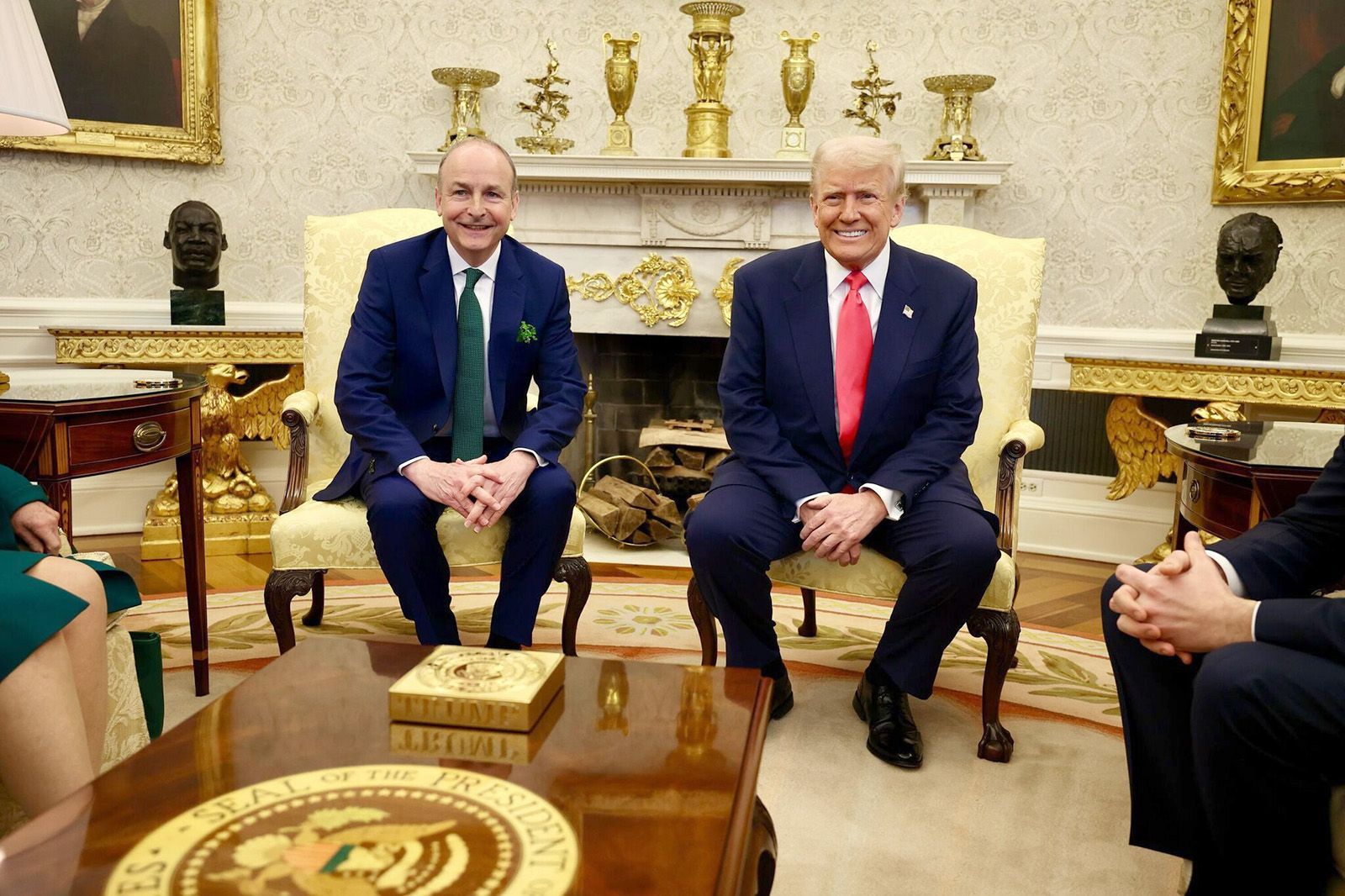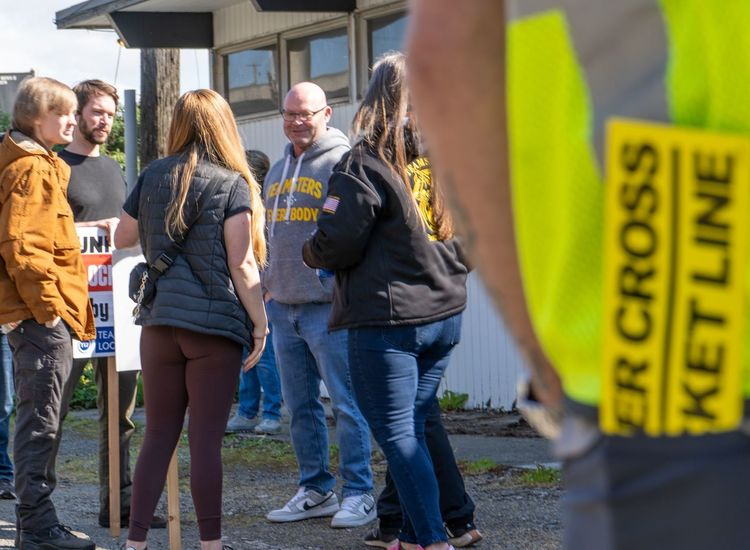Back on March 12, as Taoiseach Micheál Martin sat with a fixed smile on his face in the Oval Office and President Trump did most of the talking, it would have been apparent to most that this meeting was not like all those of former years leading up to the presentation of a bowl of shamrock by the Irish visitor to the American host.
For Martin, it was a matter of dodging the worst rather than advancing the best. Most observers gave Martin a pass grade. At least Trump didn't express a desire to expropriate land beyond his Doonbeg golf resort in County Clare.
But this week the thought of such a move pales in comparison to the expected imposition of punitive tariffs on European Union countries, including Ireland.
So-called "Liberation Day" sounds like the moment when a war is concluded. But in fact it is the description of a day when war commences - a trade and tariffs war that could have devastating consequences for exposed economies such as Ireland.
Ireland is exposed by virtue of playing host to a small army of American corporations paying taxes to the Irish government, not the U.S. one. And President Trump does not like this, not one little bit.
Of course it makes sense for these U.S. corporations to operate on Irish soil. They are located in a politically stable country and have access to the huge EU market. They also pay relatively low taxes, though significant amounts nevertheless.
It might have been an idea if Martin had explained to Trump that the presence of all this American corporate activity in the 26 counties has gone a long way to reversing Ireland's economic fortunes, this to the point that the Irish government, and people, are now able to financially involve themselves in the development of the northern six counties by way of the Shared Island Initiative.
In other words, American dollars paid in tax in Ireland are helping pave the road to the eventual reunification of the island.
Unity, Martin might have explained, was never going to be achieved with bombs and bullets, but rather through political and economic means, a gradual merging of the two parts of the island from the starting point of the Good Friday Agreement.
Martin might have pointed to the habit of northern unionists in past time denigrating the Republic for being poor and backward.
Well not anymore. And not anymore in significant part due to the presence in the South of all those American corporations.
So this economic partnership between Ireland and corporate America was sowing seeds for a better future for the entire island and President Trump had it within his power to plant those seeds by staying his hand on tariffs aimed at Ireland.
In the meantime, something could be worked out to square the circle a bit, share the pot of tax gold more equitably so that both Ireland and the U.S. might benefit more evenly from all the corporate activity in parts of Ireland once best known for emigration.
Now that would have been an outcome worth any number of shamrock bowls. But if things proceed as the White House plans this week the bowl is in shards, its contents well and truly withered.









